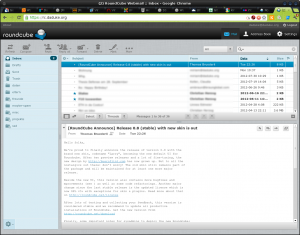Workshop: IT at D-PHYS
Update: Attendance of the workshop was somewhat lower than expected (3). We would still like to offer this workshop on a regular basis, but we'll have to see how many registrations we get. We'll keep the registration page open, but without a predefined date.
When you first start your career at our department, the IT situation might look a bit confusing: there's ID and there's ISG, two different accounts and e-mail addresses, where to store the data... We figured that instead of fixing things after they have gone wrong just because people didn't know how to handle them, it would be easier for everybody to try and introduce new arrivals to D-PHYS' IT as early as possible. That's why we hereby start our series of introductory IT workshops. The first one has taken place on Thursday, November 29, at 14:00 in HPF G 6.
So if you feel you have some questions regarding the IT landscape at D-PHYS, please consider attending this ~ 1h workshop. Before you do, please take a look at the website where you can also find the PDF of the talk. Maybe all your questions are already answered in there. If not, head over to the registration website and provide your name and e-mail address. In order to allow for a lively discussion, we have limited the registration to the first 25 applicants. If you're too late, don't despair, there will be enough tutorials for everyone, we'll just schedule more.
Looking forward to seeing many of you in G 6!


